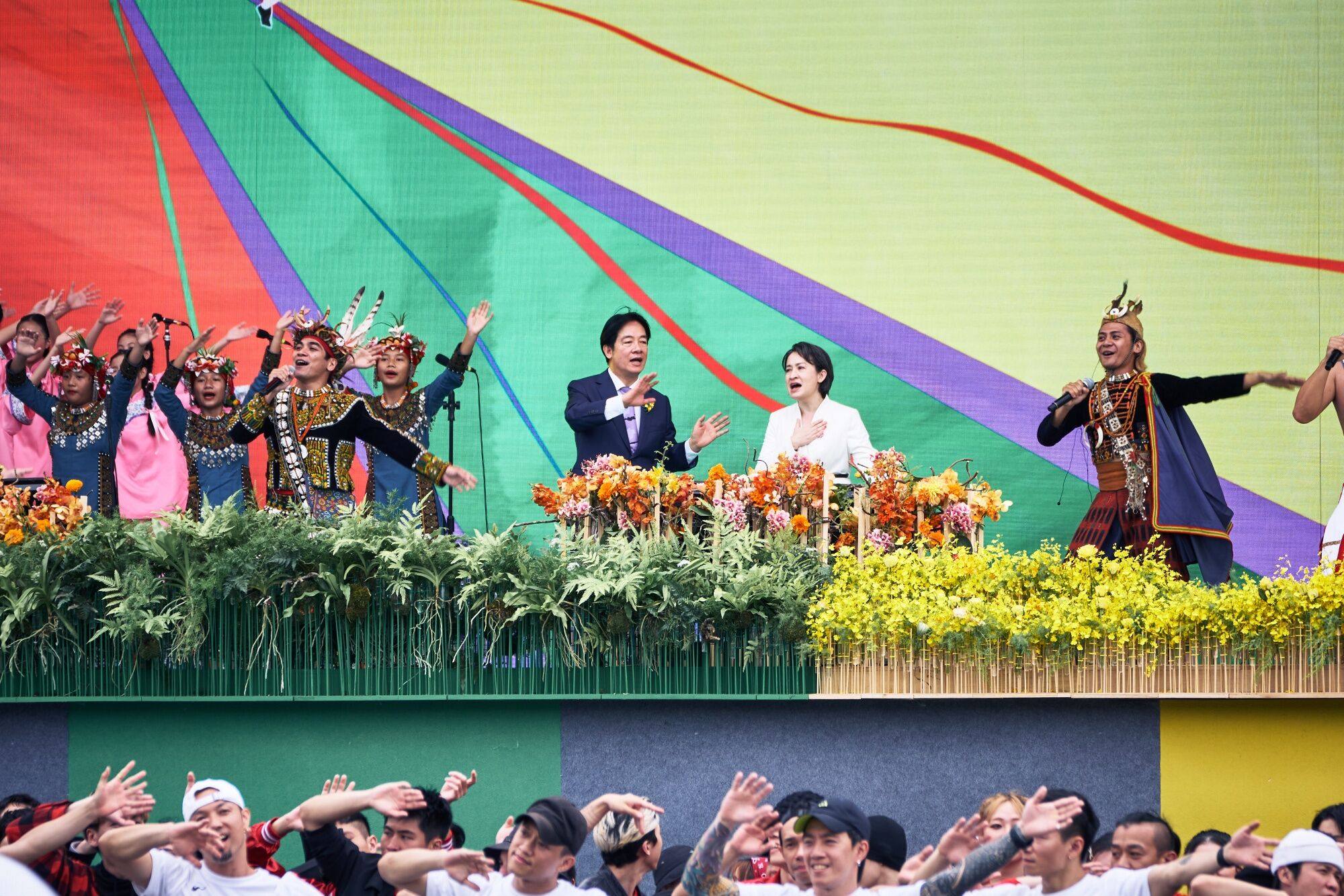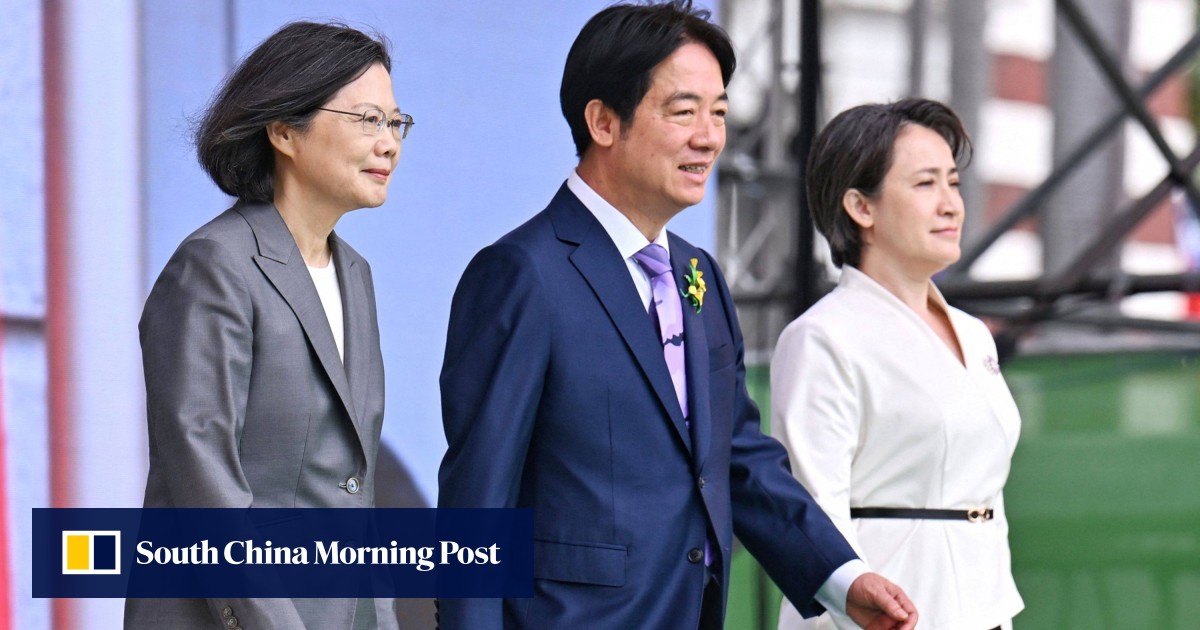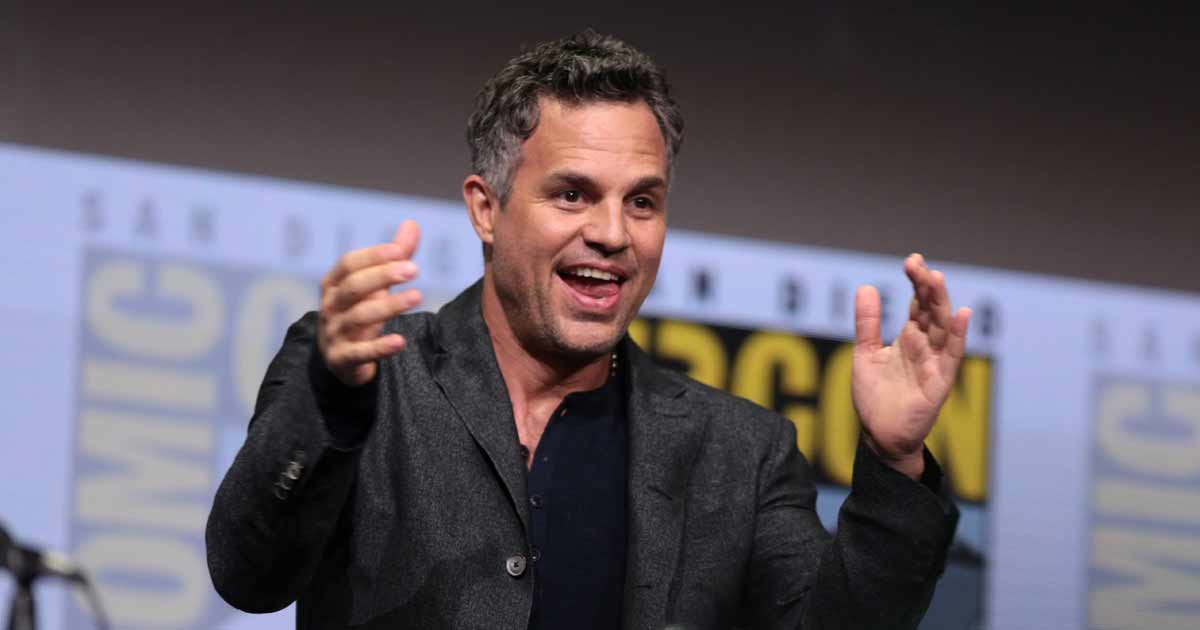He also urged the island’s residents not to harbour any illusions about Beijing.
“So long as China refuses to renounce the use of force against Taiwan, all of us in Taiwan ought to understand that even if we accept the entirety of China’s position and give up our sovereignty, China’s ambition to annex Taiwan will not simply disappear,” he said.
Beijing views Taiwan as its territory that must be brought under its control, by force if necessary. Like most countries, the US does not recognise Taiwan as an independent state but is opposed to any unilateral cross-strait status quo change by force.
When discussing Taiwan’s international status, Lai highlighted the names used by the island’s “international friends” and referred to Taiwan as a “nation”.
He said that some refer to the island as the “Republic of China” – the island’s official name for itself – while others call it the “Republic of China Taiwan” or simply Taiwan, but “whichever of these names we ourselves or our international friends choose to call our nation, we will resonate and shine all the same”.
On Monday, Taiwan’s opposition parties cried foul, saying Lai highlighted that the DPP puts independence ideology over the island’s interests.
Eric Chu Li-luan, chairman of the Kuomintang, said Lai’s inaugural speech showed that he opted for a “two-country” framework in dealing with Beijing.
“[Lai’s] advocacy for a two-country framework contradicts former president Tsai’s previous approach based on the ROC Constitution and the Act Governing Relations between the People of Taiwan Area and the Mainland Area,” Chu said.
“This approach might lead to increased tensions across the Taiwan Strait,” he added.
“[This is] completely disregarding the Act Governing Relations between the People of the Taiwan Area and Mainland Area,” said Hsiao Hsu-tsen, executive director of the Ma Ying-jeou Foundation, referring to the island’s law governing ties with Beijing.
He said Lai’s “direct and explicit stance is tantamount to leaning towards Taiwan independence, leading to an unprecedentedly dangerous situation between the two sides of the strait”.
Hsiao raised doubts about whether the United States was informed in advance and supported such a stance. He said that if Washington had been opposed, US Secretary of State Antony Blinken would not have publicly issued a press release congratulating Lai on his inauguration, as Lai’s statements “deviated from past practices”.
“However, if the US was informed in advance and supported the inauguration, the situation across the Taiwan Strait would become extremely dangerous,” he said.
In a warm message, Blinken congratulated Lai on Monday on his inauguration, affirming that the partnership between the American and Taiwanese people was “rooted in democratic values” and continued to expand across various sectors including trade, economics, culture and people-to-people ties.
“We look forward to working with President Lai and across Taiwan’s political spectrum to advance our shared interests and values, deepen our long-standing unofficial relationship, and maintain peace and stability across the Taiwan Strait,” Blinken added.

Other members of the international community also sent commendations and good wishes.
“Congratulations to Taiwan for this display of vibrant democracy. Peace and stability across the strait are key to regional and global security and prosperity. I look forward to continuing to develop our relations,” wrote Filip Grzegorzewski, head of the European Economic and Trade Office, on social media platform X, formerly Twitter.
In a statement released on Monday, Japan’s Chief Cabinet Secretary Yoshimasa Hayashi expressed hope for deepening friendship with the island, underscoring that Taiwan is a “very important partner and friend” of Japan, and highlighting the shared values, close economic ties, and personnel exchanges between the two sides.
Taiwan’s Mainland Affairs Council said that Lai’s inauguration “has garnered unanimous recognition from the international community” and his government would “continue to defend national sovereignty” and promote cross-strait peace and stability.
It noted that in his speech, Lai expressed the “greatest goodwill and hopes that the Chinese side will understand this sincerely, and work with our side to respond to the expectations of both sides and the international community”.
James Yifan Chen, professor of diplomacy and international relations at Tamkang University in New Taipei, said Lai’s speech was “tougher than expected”.
He said Lai appeared to challenge the “ambiguity” within the island’s constitution and its law on cross-strait ties, “moving towards a sovereign nation without formally declaring independence under the name of Taiwan”.
Chen said the move would provoke further pressure from Beijing and also raise doubts in Washington, which wanted stable ties with mainland China as well as stable cross-strait ties.
“Unlike Tsai, Lai may not even be able to get the answer sheet from Beijing,” Chen said, alluding to Tsai’s 2016 inauguration speech.
Beijing described Tsai’s speech as an “incomplete answer sheet” because she did not directly acknowledge the 1992 consensus, a tacit understanding between Beijing and Taipei that they must recognise there is only one China, though each side can have its own interpretation of what that means.







